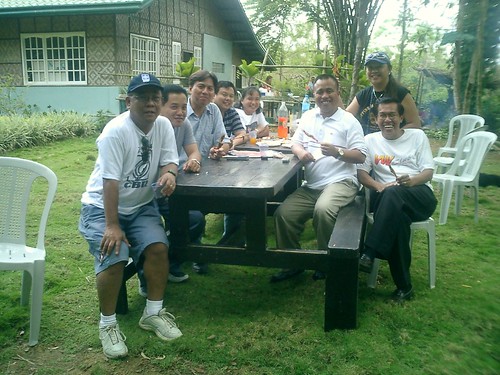PCIJ
THE dream of federalism is as old as the Republic itself. Cebu-based historian Resil Mojares writes that in 1898, even before the revolutionary government of Emilio Aguinaldo had established its presence in the Visayas, leaders in Iloilo already formed a Federal State of the Visayas, anticipating the formation of a federal republic with three states — Luzon, Visayas and Mindanao.
In 1899, when the Americans were establishing their rule throughout the archipelago, a group of Filipinos, says Mojares, also submitted to the Philippine Commission a draft constitution for a Federal Republic of the Philippines, which would divide the country into 11 states. The following year, Ilocano intellectual Isabelo de los Reyes proposed a federal constitution with seven states, each named after Filipino heroes (Burgos for northern Luzon, del Pilar for central Luzon, down the line to Soliman for Mindanao).
These proposals were not heeded for understandable reasons. Aguinaldo was fighting a war and so needed a strong republic (another not-so-new term) with a strong center. The U.S., too, was cool to the idea, because it needed to consolidate its rule throughout the islands. But federalism is a dream that refuses to die.
The calls, from the 1970s, for a Republic of Mindanao (with its own currency, the Mindanao dollar), were the martial-law versions of this dream — the strong centralized authoritarian rule of Marcos naturally whetted federalist aspirations. In Cebu, as Mojares writes, the federalist call became more intense after Ceboom of the late 1980s and the realization by local leaders that they had a thriving economic base that was weighed down by its links to the center. For sure, there is a popular yearning for federalism, a yearning that through the years has also been exploited, domesticated and thwarted by politicians of every stripe.
Today President Arroyo is resurrecting the federalist dream, as part of a package of constitutional changes designed to save her embattled presidency. The leaders of the House are also endorsing it, although they, especially Speaker Jose de Venecia, are really more interested in a parliamentary system that gives their kind — politicians with a patronage and electoral base in the districts — both executive and legislative powers. For de Venecia, et.al. a shift to a parliamentary system offers a back route to the prime ministership and protects the monopoly of political power by traditional politicians, most of them members of political clans, from the incursions of media and movie stars into what was once trapo territory.
In fact, the draft constitutional amendments proposed earlier this year by the Speaker's allies in the House committee for constitutional amendments hardly mentions federalism, except to say that a federal form of government would be installed within 10 years after the approval of the amended constitution. Not surprisingly, it gives the new parliament the power to divide the country "into as many 'independent states'" as it deems fit, and to define the powers of those states, while reserving for the federal government powers on national defense, monetary policies, and "such other powers as it may deem imperative." (Click here for House Concurrent Resolution No. 04, authored by Rep. Constantino Jaraula, which embodies the vision of constitutional change of the Speaker and his allies.)
The proposed constitutional amendments in the House spell out de Venecia's dream: an all-powerful unicameral parliament or National Assembly, which will elect a powerful Prime Minister, who will choose his Cabinet mainly from the elected representatives. All members of the parliament will be elected by single-member districts; there is no mention of party-list or proportional representation. There will also no longer be any limits on the number of parliamentarian's terms, which will each be four years rather than the current three.The President, elected from among the members of the National Assembly, will have only ceremonial functions.
Only yesterday, in a press conference held by some Lakas congressmen with federalism advocate, the respected academic Jose V. Abueva, did the Speaker's allies give more details of their vision of a Federal Philippines. In launching the Movement for a Federal Philippines, the congressmen said there will be 12 states which would have taxation and lawmaking as well as executive powers, with the federal government being limited to defense, police, foreign relations, monetary policy and communications.
Abueva has been chosen by the president to be a member of a Consultative Constitutional Commission for Charter Change, composed of eminent citizens who would consult with people around the country and submit their inputs to Congress. A long time advocate of constitutional reforms, Abueva has proposed a federal-parliamentary system of government composed of 11 states, with a president as symbolic head of state, a powerful prime minister who is head of government and a bicameral parliament. The House of the People will have 300 members, most of them elected at the district level although 60 to 80 members would be selected by proportional representation. The Senate shall be elected from members of the states assemblies, meaning that they will be representatives of their states or regions. The parliament members will sit for four years and will elect the prime minister from among themselves.
Abueva's proposals for federalism, unlike the Jaraula resolution, are more defined and articulated. They also include measures for electoral and political party reform. For your weekend reading, read Abueva's proposal here.
Even as the talk of cha-cha snowballs, the reality is that without Senate approval, the proposal to convene Congress into a constitutent assembly to draft a new constitution is dead in the water. But the congressmen's persistence, and the mobilization of popular support, especially for federalism, might yet succeed in creating enough political noise to keep the issue in the media and in the national consciousness in the coming weeks.
Meanwhile, the public focus will also be on the impeachment, and the energies of the opposition and a whole range of political movements will be aimed not so much at charter change but at holding the president accountable.
This makes the charter change advocates in the anti-Arroyo camp fume. Joel Rocamora of the Institute for Popular Democracy, who has worked for constitutional reforms for many years, is mad that the President is now mouthing the same "arguments that many of us who advocate constitutional reform have been saying for years."
"Now the same arguments (are) being soiled by the barf of her desperation," he rants. (Read that piece here, as well as an earlier, more sober article, called " Cha Cha pag wala na si Gloria."







1 comment:
Post a Comment